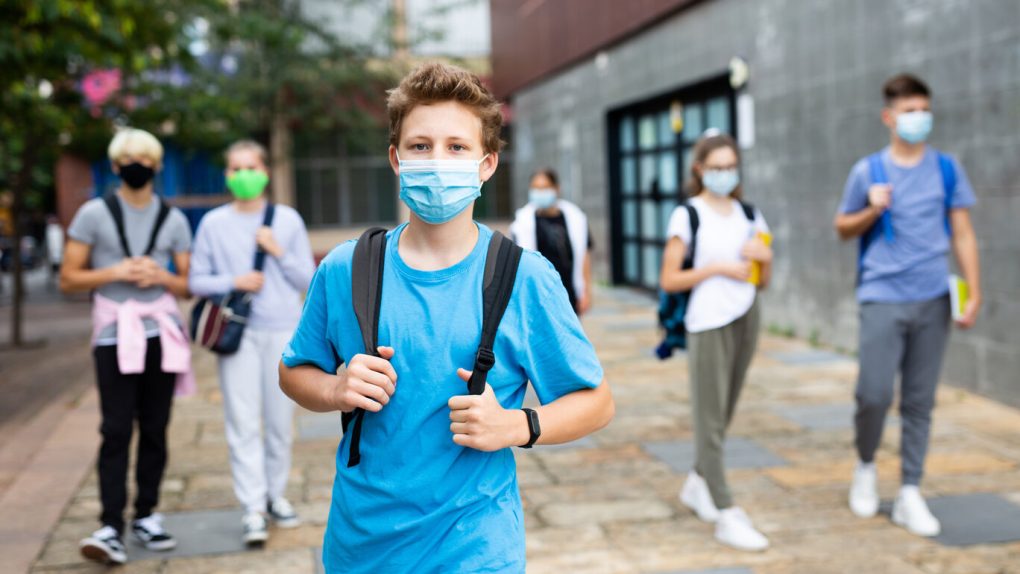- Swiss researchers say closing schools can reduce the spread of the novel coronavirus.
- The scientists analyzed mobility data during the first COVID-19 wave in Switzerland when several public health measures were implemented to reduce COVID-19 transmission. The closing of schools was one of them.
- School closures have been a controversial topic throughout the pandemic. This new study tackles an aspect that’s not usually discussed during debates about the subject.
The closing of schools was one of the most controversial measures that health authorities advised during lockdowns. Many have argued that schools should remain open, as COVID-19 is a bigger danger for older people than for young children and teenagers. There are exceptions, as the novel coronavirus has killed children as well. And there was always the risk of the MIS-C illness that can appear after COVID-19 in some children. But it’s adults suffering from specific comorbidities who have the highest risk of developing severe COVID-19. As more research was made available, researchers quickly found out more details about COVID-19 infections in children and their ability to spread the virus. But many people still argued in favor of schools remaining open. It wasn’t just that children need to socialize with their peers and that school might be more efficient in person than online. Keeping kids at home could be problematic for families who have to work and can’t care for children during the day.
Researchers from Switzerland analyzed the effects of school closings during the country’s first COVID-19 wave and concluded that keeping children at home reduced the transmission rate. But the reason that happened might not be directly linked to the contagiousness of children.
“The closure of the schools reduced mobility by 21.6%,” ETH professor of computer science and management Stefan Feuerriegel told AFP, via SwissInfo. Feuerriegel is a computer science and management professor at the Federal Institute of Technology ETH Zurich and lead author of the study.
Feuerriegel’s team looked at Swiss people’s movements between February 10th and April 26th, 2020, using data points from Swiss mobile operators. The team analyzed 1.5 billion movements during the period to measure the impact of the various public health decisions taken that authorities implemented.
The ban on gatherings of more than five people reduced mobility by 24.9%. The closure of bars, restaurants, and non-essential shops reduced mobility by 22.3%. School closings came in after that, with 21.6%.
As the second COVID-19 wave hit Europe, countries like the UK and Germany resorted to softer lockdowns in early November. But both countries kept schools open while restricting other activities. Both countries experienced increases in cases in the weeks that followed, despite the new lockdown measures. Only a study could explain the link between schools remaining open during these lockdowns and the COVID-19 surges. There are a few significant limitations that might impact such research. The holiday season could have fueled COVID-19 surges in these countries, just as in the US. Furthermore, the UK confirmed before Christmas, it had detected a significant mutation driving the spread. The UK experienced a record number of infections in the final days of December and in early January.
The number of infections among US children also soared in November, one of the worst months of the pandemic for the nation.
The Swiss researchers did not focus on the risk of COVID-19 spread between children, which is a factor that can drive infection. Several reports have detailed cases of COVID-19 outbreaks in schools that included students, teachers, and staff members. The people who were infected could then spread the illness to others in the family. Studies have shown that COVID-19 spreads best in the one place people stop using protective measures because they think they’re safe, the home.
But the researchers pointed out the obvious thing about school closings that’s not immediately clear to anyone debating in favor or against closures. It’s not just preventing children from interacting that might help. It’s the changes in the habits of parents that can reduce transmission.
“If the schools are closed, we can hope for a big change in behavior,” Feuerriegel said. “Not only do children stay at home, but sometimes it also means a change for the parents.”
“Our analysis confirms that the closure of schools is a measure which makes it possible to reduce the speed of circulation of the virus by reducing travel,” the professor said.








